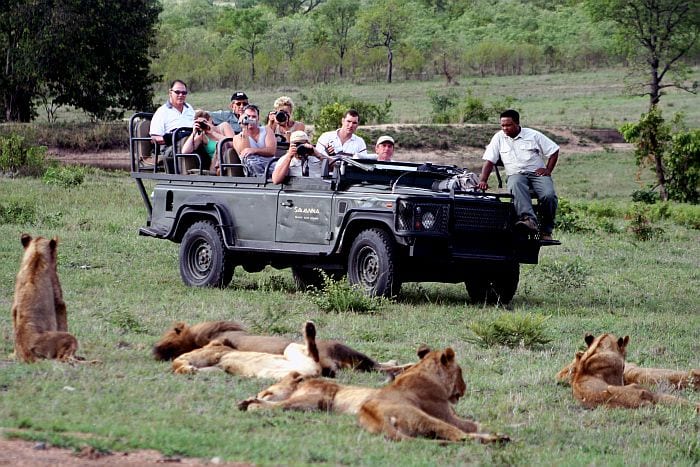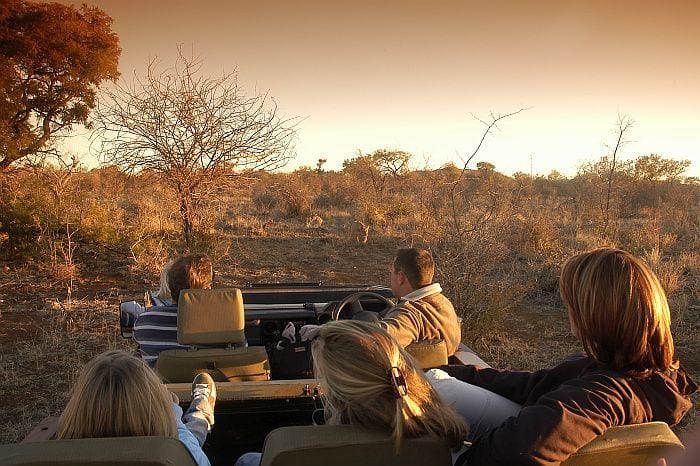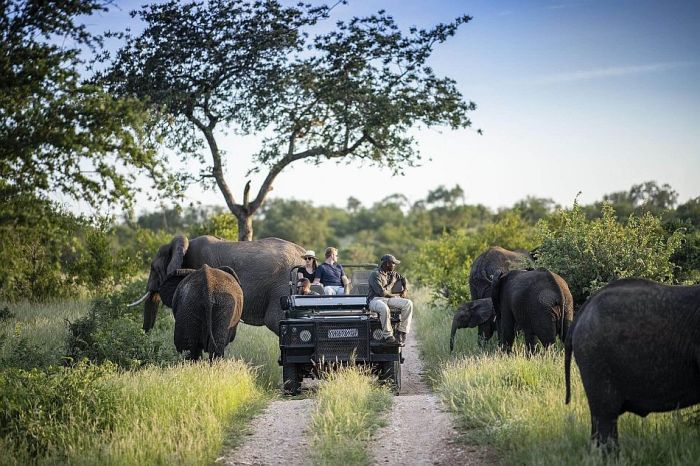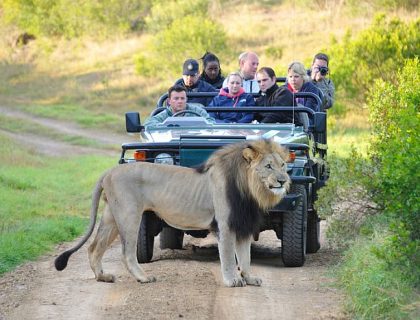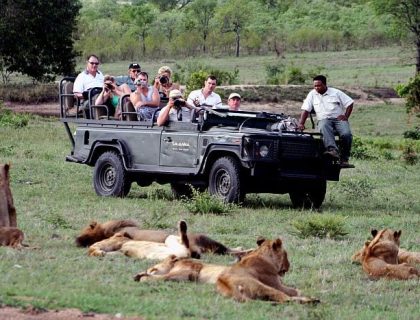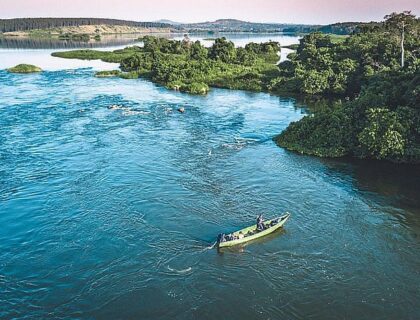First Game Drive Ever?
So you’ve arrived at your rather expensive game lodge and you are keenly awaiting your first game drive. What can YOU do to ensure that you have the best possible game drive experience?
We have put together eight tips that will help to make the most of your first game drive!
Game Drives in Africa
1. Understand how a game drive works
Some people like to live in suspense and take life as it comes. If that’s you, you can skip this part! Others get more from an experience if they understand how it works…
Broadly speaking private game lodges offer open vehicle game drives with anything from 4-6 people (at the most expensive lodges) up to 9-10 people at the more moderately priced lodges. And it’s usually somewhere in between. There is a place for one person next to the ranger (more on that later) and then three rows of seats usually each one a little higher than the last. The drive usually lasts around 3 to 4 hours depending on what you see and there’s a break for morning coffee/tea. And for evening sundowners. Naturally this is also an opportunity for a bush loo stop!
Usually the ranger will be in radio contact with other vehicles. Either belonging to the same lodge and/or neighbouring lodges traversing the same area. This is a good thing because more eyes out in the bush mean more sightings and everyone wins. But of course there is an etiquette involved here! A private game reserve doesn’t want 10 vehicles converging on a sighting all at once. As this disturbs the animals, the tranquility of the bush and throws your chances of getting a stunning photo badly off-kilter.
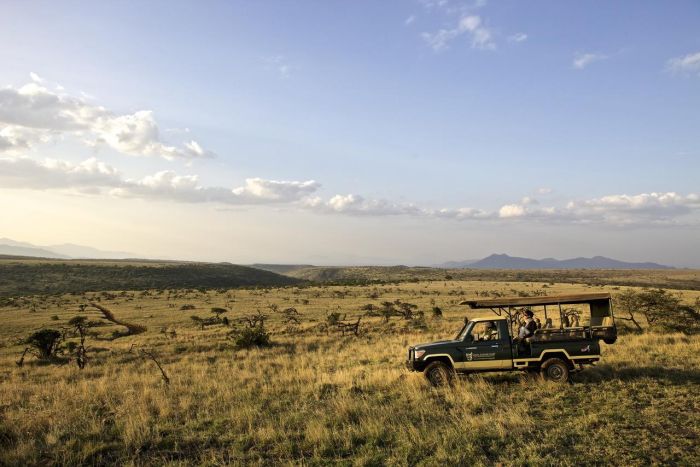
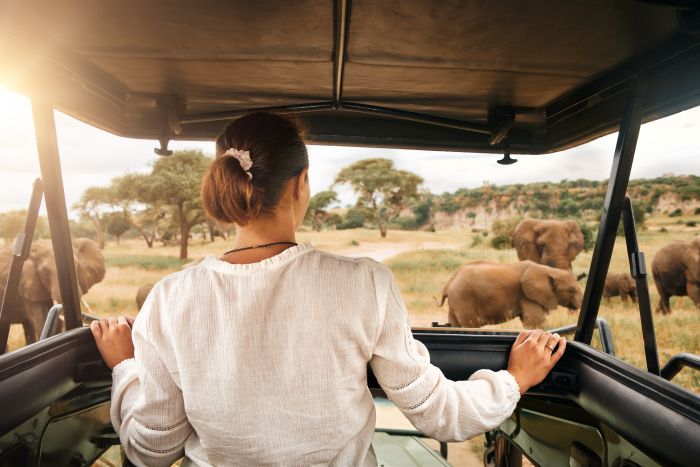
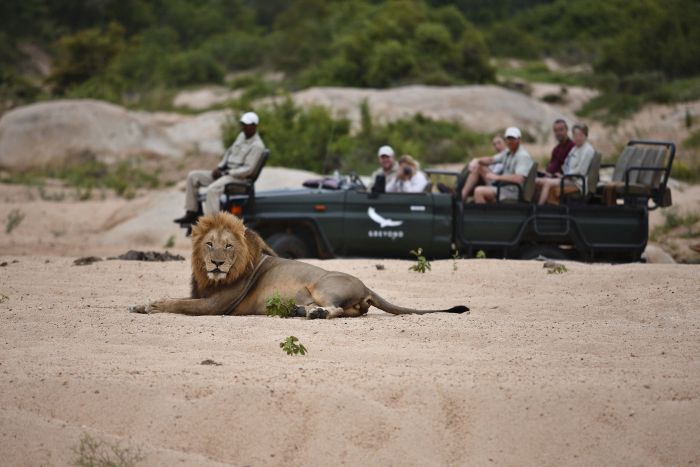
So when a vehicle comes across a major sighting such as one of the so-called Big Five, or wild dog cheetah etc, they spend a few minutes enjoying the sighting in peace before radioing in to other vehicles. There then follows a delicate ‘dance’ between the rangers as to who heads to the sighting next. This depends on their distance away. Usually two, and not more than three, vehicles are allowed at a sighting at any one time. If you are second to a sighting, you cannot immediately go in front and take the best vantage point thus ruining the experience for the original vehicle. However as they move off, your ranger can move the vehicle into a better spot for photos.
Your ranger will try to ensure that all people on the vehicle can get a decent photo. Please keep in mind that depending on the terrain, the animal’s behavior and the lighting, this is not always possible…
Sometimes you may find yourselves in a sort of ‘queue’. Of course a good ranger will not make this obvious to you and will occupy this time discussing other things.
The private game lodges generally stick to the reserve roads but are allowed to go off road to follow a major sighting. However whether they do so or not depends on the terrain. It might look fine to you but they will know that there is major ‘donga’ (sharp steep uncrossable cleft in the bush ) for example.
In an “ideal” game drive, you will have a mix of good, sometimes even exciting sightings with plenty of time to just appreciate the animals, the landscape, lots of discussion with your ranger and also the chance to learn about other aspects of the bush such as plants, birds, how to track animals, how to know which animal passed on the basis of their dung etc.
However not every game drive is an epic one. Just as not every day will be the best day ever. Some drives are quiet. Sometimes this is because of the weather – a strong wind or a cold front affects animals as much as humans. Sometimes you’re just not lucky!
Luxury African Safaris
2. Bring the right kit
I go into this in some detail in our What to Wear guide but as far as the actual game drive goes, try to have the following:
- Camera – See next point
- Binoculars – the best you can afford and ideally one for each person, or minimum one to share between two people.
- Sunblock
- Wide brimmed hat for summer, and woolly beanie for winter
- Animal and bird books – usually on sales in the lodge shop if you don’t already have. You could also get bird apps for your phone as well.
- For bush loo stops – some tissue & a bag to put it in afterwards, hand sanitizer. (Though usually the ranger will have this.)
- Layers of clothing for late autumn to spring
- Mosquito repellent for summer
- Reusable Water Bottle
For families:
- Simple animal check-list – great for keeping kids motivated
- Safari activity books
- Access to photography, whether it is a disposable camera or simply borrowing your camera phone
- Binoculars – ideally one for each family member – have I said that before? Shall I say it again?
- Dried fruits or nuts if your kids are likely to get hungry (though snacks are provided at the morning and evening stops).

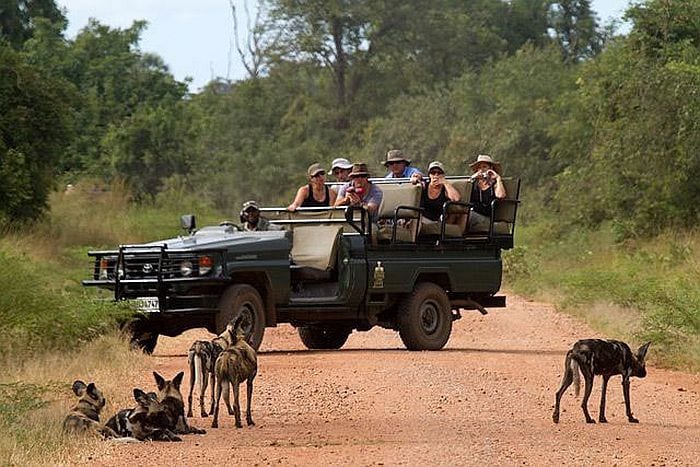
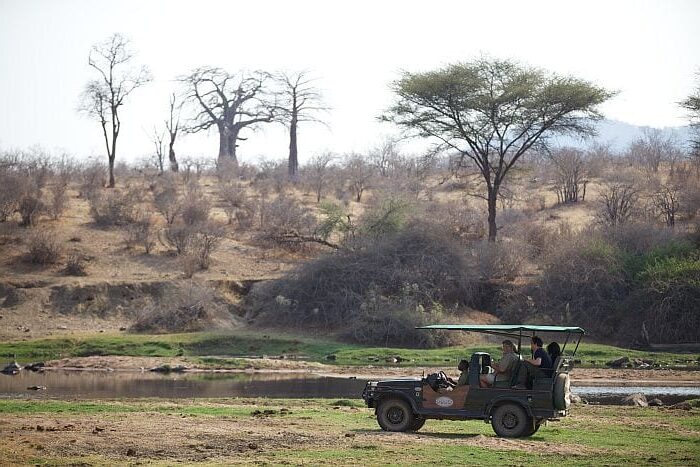
3. Sit in the middle of the vehicle
This gives you the best of all worlds. You are high up so animal sightings are good. But not so far back that you can’t ask questions of the ranger.
However each seat has pros and cons. The front seat is ideal for older, less mobile people. And in winter, it is definitely the warmest. But your sightings are not nearly as good because you don’t have the height.
The first seat is ideal if you like to ask a lot of questions and you have an unobstructed view to the front (my preference). The middle row gives you greater height, but you can still hear the ranger.
The back seat is a love it or hate it experience. My husband reverts to being a naughty schoolboy at the back of the bus (much giggling and in-jokes with the kids). It is definitely the bumpiest option and also the coldest in winter. But you do have the added advantage of being able to look over your shoulder at what is behind the vehicle – ideal if a line of animals such as a pack of wild dogs has just walked from the front to the back.
Open safari vehicles
4. Ask Questions
This does what it says on the tin. The more you ask, the more you learn. Some rangers have verbal diahrea but most have way more knowledge than they can possibly share with their guests, so keep asking questions.
Interested in booking a Safari or Holiday?
Chat to one of our experienced consultants that’s here to help and guide you. We use our expertise to narrow down the choices and present feasible ideas, so you can relax and ENJOY the planning process! Contact us!5. Divide the photographic duties
As a couple, the best way to get the best shots (unless one of you is a much better photographer ) is for one person to have a camera with a good zoom lens. And the other to have a camera set on a general or wide lens setting. That way you are prepared to take both the close-up shot of the lion and the glorious sunset shot over the waterhole without having to constantly change the lens. If you are interested in photography, why not check out our articles on safari photography tips.
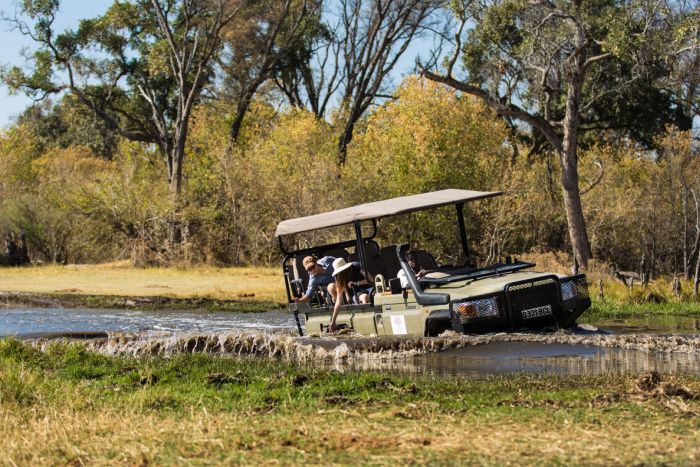
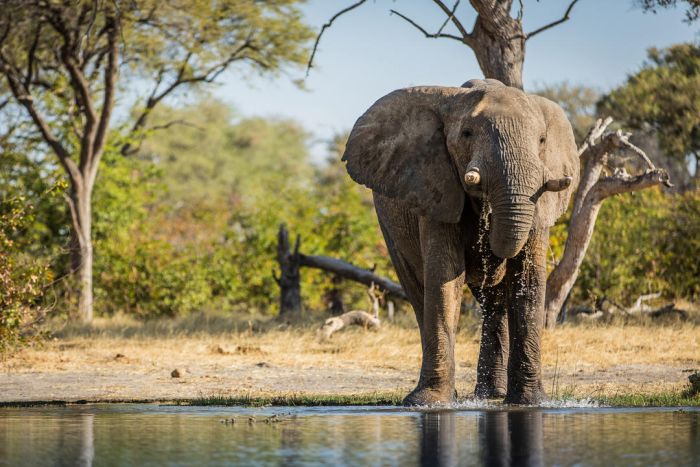
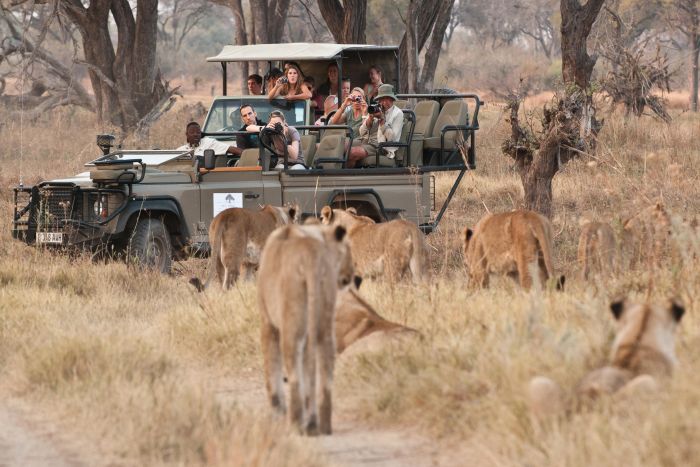
6. Have appropriate expectations
Some game rangers ask people what they want to see. Though I can understand why they do this – they want to know if someone is really into birds or elephants or giraffes. Inevitably someone says that they want to see a leopard or a cheetah, two of the most elusive animals in the bush. Then the ranger has made a rod for his own back! Why does he do this?
Sure, give your ranger an idea of something that you would like to see. But try to have as few expectations as possible. If it’s a quiet drive, ask lots of questions and get the ranger sharing his knowledge with you.
7. Have Patience
Your game ranger will try to make sure that everyone in the vehicle is happy. That might entail staying longer at a sighting than you personally want so that everyone can get a good photo. Similarly you may have wanted to stay longer with some animals but others are keen to see an important sighting which is nearby. Try to go with the flow.
African Sunsets at their best
8. Birds and/or Keen Photographers?
Consider taking a private vehicle.
Generally speaking the shared game vehicle will be fine for most people. Private vehicles can cost quite a bit extra, depending on how the lodge prices it. (Some charge per vehicle and some charge per empty seat so that if there are only two of you…)
However if you are either a) keen birders or b) keen photographers, I recommend considering a private vehicle. As your needs and wants differ considerably from the average safari visitor. In the case of birders, you may NOT be interested in spending time at the usual animal sightings “big five” which other people want. Similarly others may not share your passion for ticking off the ”specials” of the area.
In the case of photographers, you will probably want to spend far longer at a sighting than most people, waiting for the right light or the right angle.
Important Note on private game vehicles:
If you are travelling in peak season, this may not always be possible. As each lodge is restricted to the number of vehicles it is allowed in many reserves and so if the lodge is full, then a private vehicle is not possible. However if you are a party of four or five, you may like to enquire about a private two-bedroom villa as these often come with their own private vehicle. You may a little extra but the private vehicle is worth a lot.
Check our our Wildlife & Safari pages for suggested safari itineraries and game lodges.
Interested in booking a Safari or Holiday?
Chat to one of our experienced consultants that’s here to help and guide you. We use our expertise to narrow down the choices and present feasible ideas, so you can relax and ENJOY the planning process! Contact us!“8 Tips to Get the Most from your Game Drive” was written by Cedarberg Africa
Cedarberg Africa is a specialist tour operator for Southern and East Africa. We focus on upmarket tailormade safaris for discerning and busy people. We make our money on the difference between our trade rates and the rates that are available to you, so that means that effectively all our years of experience and expertise comes free of charge…

